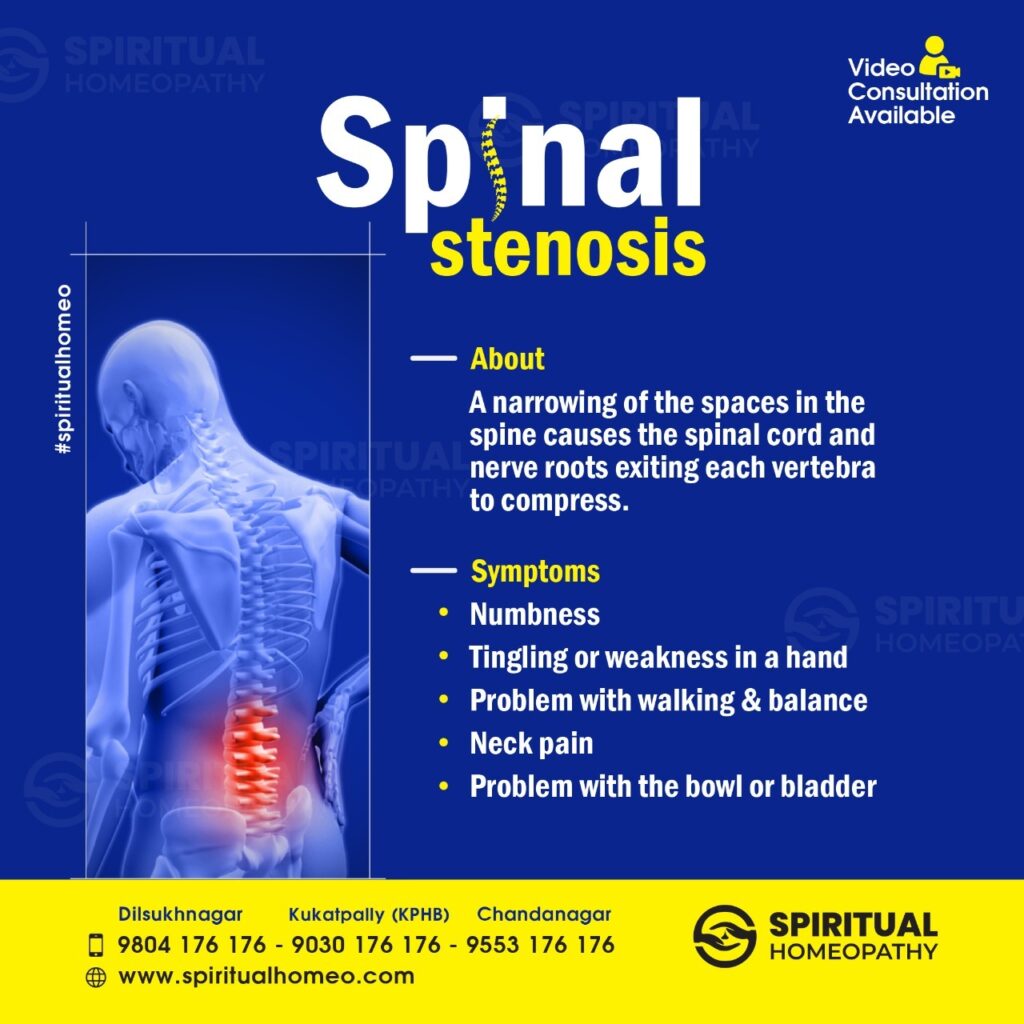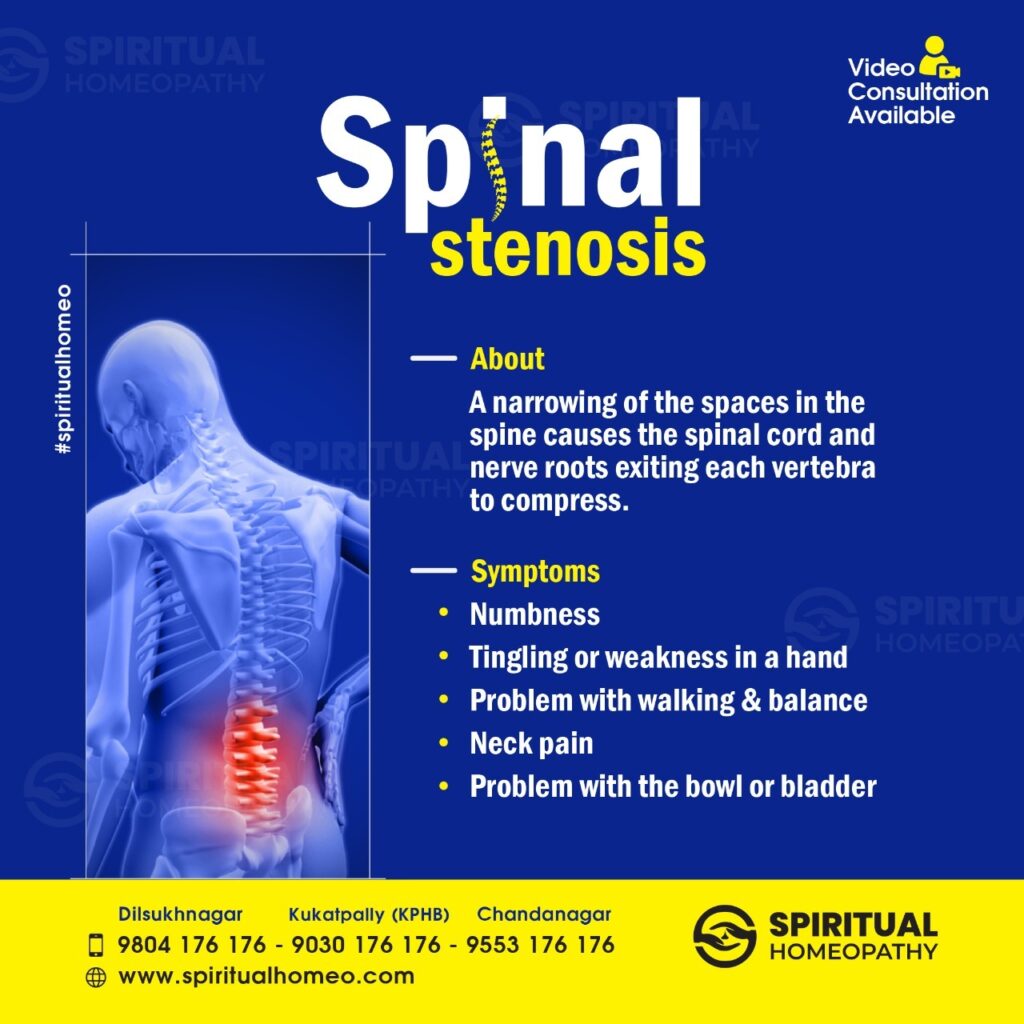Spinal stenosis is a condition characterized by the narrowing of the spaces within the spine, which can put pressure on the spinal cord and the nerves that travel through the spine. The symptoms of spinal stenosis can vary depending on the location and severity of the narrowing. Common symptoms include:
Pain: Pain is one of the most common symptoms of spinal stenosis. It can vary in intensity and location, but it typically worsens with activity and improves with rest. The pain may be in the back or neck, and it can radiate to other areas of the body, such as the arms or legs, depending on where the stenosis is located.
Numbness or Tingling: Spinal stenosis can compress the nerves, leading to numbness or tingling sensations in the extremities. For example, if the stenosis is in the neck (cervical spine), you may experience numbness or tingling in the arms and hands. If it’s in the lower back (lumbar spine), you may feel these sensations in the legs and feet.
Weakness: Muscle weakness can occur as a result of nerve compression. This weakness may affect your ability to grip objects, walk, or perform other tasks that require strength and coordination.
Difficulty Walking: Spinal stenosis in the lumbar spine can lead to difficulty walking. You may experience a heavy or weak feeling in the legs, and it may be challenging to maintain balance while walking. Some individuals with spinal stenosis may need to lean forward or use a shopping cart or walker to alleviate these symptoms.
Bowel or Bladder Dysfunction: In severe cases of spinal stenosis, particularly when it affects the lower spine, there can be bowel or bladder dysfunction. This may manifest as incontinence or difficulty with urination or bowel movements.
Pain Relief with Bending or Sitting: Some people find that their symptoms improve when they bend forward or sit down. This position can open up the spinal canal slightly, relieving pressure on the nerves.
Pain at Rest: In some cases, spinal stenosis can cause pain even when you’re at rest, especially if there is significant nerve compression.
It’s important to note that the severity of symptoms can vary widely among individuals with spinal stenosis. Some people may have mild symptoms that do not significantly impact their daily lives, while others may experience severe pain and disability. If you suspect you have spinal stenosis or are experiencing any of these symptoms, it’s essential to consult with a healthcare provider for a proper diagnosis and treatment options.
Homeopathy treatment includes specific drugs that can relieve patient symptoms.Along with medications and a simple change in posture and little excersises helps to cure and also avoid surgery.
Book an Appointment
Take the first step towards better health with Spiritual Homeopathy Clinics with best homeopathy doctors in Hyderabad
Call Us:
- KPHB: 9030 176 176
- Chandanagar: 9804 176 176
- Dilsukhnagar: 9553 176 176
Enjoy the convenience of online consultations. Book your appointment through our mobile app, available on the Play Store and App Store under the name “Spiritual Homeopathy.”
Start your journey to holistic healing today. Book your appointment now!




